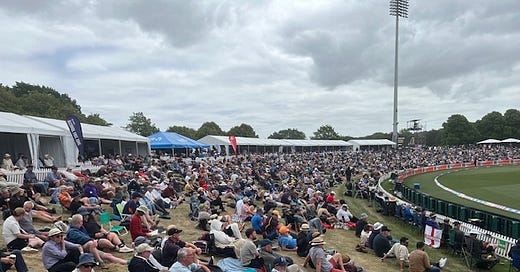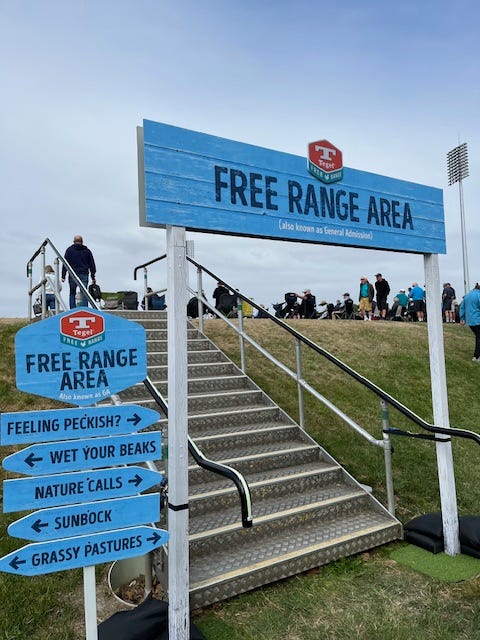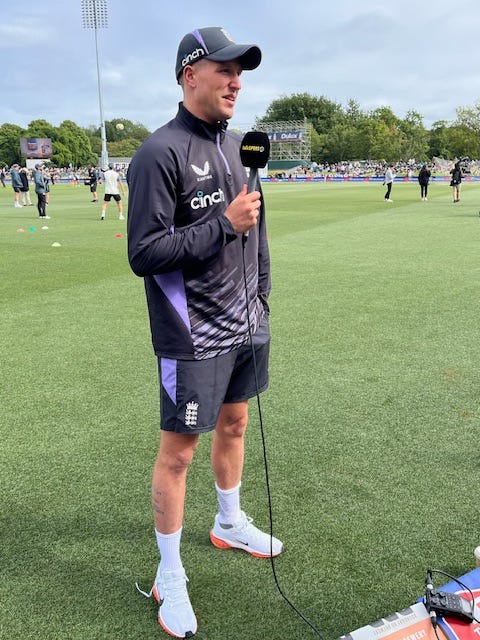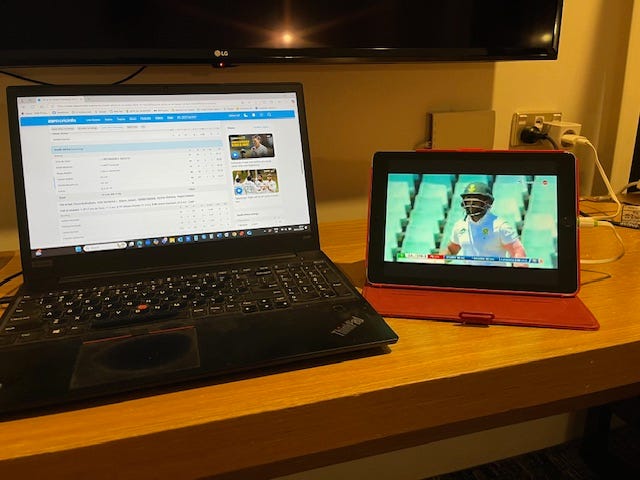The architecture and ambition of New Zealand’s international cricket venues may have been constrained by the size of the population and the fact that cricket is somewhere between the sixth and eighth most popular sport or pastime in the country, but there are valuable lessons to be learned for the future of many cricketing nations.
The Hagley Oval has minimal maintenance costs off-season with a single, permanent structure specifically designed to operate as a corporate conference and exhibition venue with generous parking and excellent catering facilities.
It is transformed for the few, major cricket events each year at some cost, largely offset by the income it generates from year-round hospitality events. Scroll back a couple of columns to see how modest and unprepossessing it looks four days before a sell-out Test match and compare it to today’s look. One day most of South Africa’s large, dedicated cricket venues will be unable to survive and expensive, crumbling stands will have to demolished. If the land is not sold to developers, the Hagley Oval should be a vision of the future.
One of England’s stars in what should be a straightforward victory against the hosts on day four was born and raised in Port Elizabeth before moving to England and signing a development contract with Durham in 2016. His Zimbabwean father, James, played for Northamptonshire in the county championship as well as Griquas, Border, EP and Western Province in South Africa. But it was the British ancestry on his mother’s side which allowed him to play in, and for, England as a local.
Amongst all of his many physical and personal attributes, and there are many, South Africans might be most tickled by Bryden’s singular disinterest in attempting to (artificially) sound or ‘be’ English. His commitment and passion is beyond question, as is his love for Durhan and the England team, but he sees no point in pretending that he is, or was, anything but South Africa born and raised. “The England cricket team is a very, very special to be,” he says with the accent of a Grahamstown pineapple farmer.
Eight hours a day commentating for my employer, TalkSport, and ‘guesting’ for New Zealand’s Sport Nation radio, has made for long (but highly enjoyable) days which, ordinarily, would not be encouraging to watching even more Test cricket afterwards. But there are exceptions, and the Proteas’ first match against Sri Lanka was a prime example. The cricket was completely compelling, and not just because of what is at stake.
Temba Bavuma, thankfully, stopped beating himself up long ago about what armchair viewers had to say about his Test record and its lack of centuries. I, too, would enjoy an eye-roll and a shrug of the shoulders, but that would mean the loss of a job rather than an increased focus on one, which Bavuma has clearly done.
I’m tempted to cut-and-paste from half a dozen articles over the last 4-5 years in which I’ve reminded readers of Bavuma’s tenacity, skill and temperament when batting conditions have been at their most challenging. Some batters flourish when the ‘hard’ runs need to be scored. Bavuma has been at his best when the hardest scores have been required. Hobart’s 74 (2016) and Wellington’s 89 a year later were just the hoers d’oeuvres to a series of tough, main course steaks unchewable to most of his team-mates. He has, admittedly, been less efficient with the Caesar salad bowling.
The full skill and value of Bavuma’s 70 and 113 against Sri Lanka at Hollywoodbets Kingsmead probably won’t be appreciated for a while yet, but it will – in the fullness of time. Given a choice of batters to score a run-a-ball on a flat pitch, Bavuma probably wouldn’t make the top 100. But to make 70 on a lavishly grassed, green pitch with generous swing in the air, he’d be top three.








As outstanding as Jansen's bowling performance at Kingsmead has been I was hoping the man-of-the-match award would have been shared between Bavuma and Jansen. Both rendered performances worthy of such a decision.
The revenues generated from the SA20 can be spent on the renovation of grounds in SA.
I can recall Ajinkya Rahane and KL Rahul, two players similar to Temba who have made tough runs but struggled in more favourable conditions. Their record at home is not that great as compared to their away records.
Rahane has tons in SENA and West Indies except SA where his highest score is 96 whereas KL has tons in South Africa, England, Australia and West Indies and has not played in New Zealand.